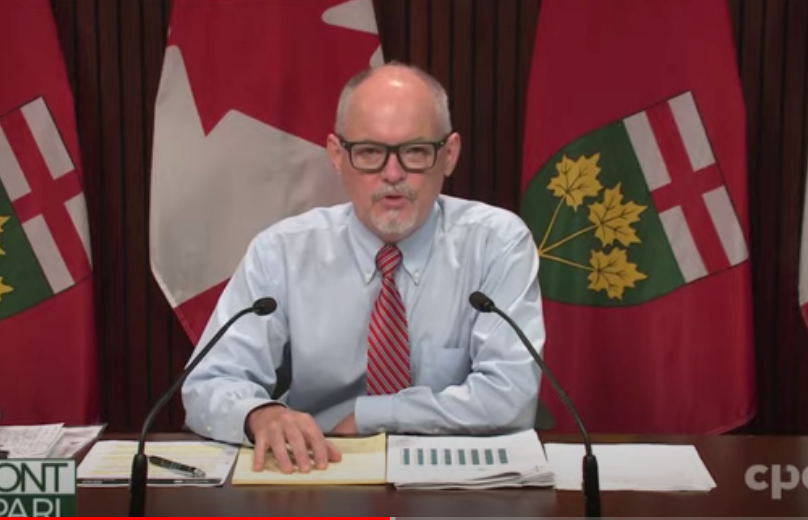With a high number of cases being reported with the Omicron variant, Ontario is taking a different approach to testing. It means the general public with mild symptoms should not seek testing.
Chief medical officer of health Dr. Kieran Moore announced a number of changes today, including who can get tested, return to school, isolation requirements and contact tracing.
Starting Dec. 31, publicly funded PCR testing is only available for vulnerable individuals, said Moore.
This includes people with significant medical issues who are symptomatic or at risk of severe disease from COVID-19, including for the purposes of confirming COVID diagnosis prior to beginning treatments. It also applies to workers, residents and others in highest risk settings such as hospitals, long-term care and retirement homes and congregate living settings.
"Members of the general public with mild symptoms are asked not to seek testing," reads the announcement.
For people taking a rapid antigen test, people with a positive result are no longer required to get a PCR test to confirm.
For isolation, people who are vaccinated and children under 12 years are now only required to isolate for five days after symptoms develop. Household contacts will also need to isolate.
Isolation can end after five days if symptoms have improved for at least 24 hours and public health measures such as masking and physical distancing are followed. Non-household contacts are asked to self-monitor for 10 days.
People who are not vaccinated, partially vaccinate or immunocompromised are required to isolate for 10 days.
"While individuals who work or live in high-risk health care settings are recommended to return to work after 10 days from their last exposure or symptom onset or from their date of diagnosis, to ensure sufficient staffing levels workers will have the opportunity to return to work after isolating for seven days with negative PCR or rapid antigen test results, which will be provided by the province through the health care setting," reads the announcement.
Ontario students will return to in-class learning, albeit a couple of days later for some.
Students will now return on Jan. 5.
The province also said it will provide not-fit-tested N95 masks for staff in schools and licensed child care settings. An additional 3,000 standalone HEPA filters are also being sent to schools.
Also in today's announcement, a fourth dose of the mRNA vaccine is being rolled out to residents in long-term care homes, retirement homes, Elder care lodges and congregate settings. People are eligible at least three months (84 days) since their third dose.
Staff, students, volunteers, caregivers and support workers in these settings are required to have a third dose by Jan. 28.
